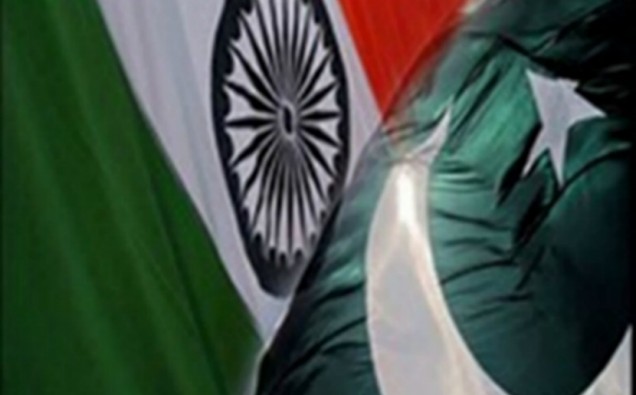
Pakistan-India cricket contests are among the most exciting sport competitions with huge following in South Asia and beyond.
In the last one year, the two countries have been locked in a diplomatic stalemate and repeated skirmishes along the Line of Control in disputed Kashmir region have also deeply hurt their cricketing ties. Although in the past, cricket diplomacy worked on some tense occasions, in recent months the popular sport’s charms have not been able to bridge the gap.
In February 1987, when Indian military exercises such as Brass Tacks along Pakistani border were at their peak, the then Pakistani President, General Zia-ul-Haq, ventured to the Indian city of Jaipur to witness a cricket test match between the two countries. His meeting with the Indian Prime Minister Rajiv Gandhi worked well and the fear of having a fourth Pakistan-India war was averted.
In April 2005, former President General Pervez Musharraf, in a bid to replicate this feat, visited India to witness a match at Feroz Shah Kotla Ground in New Delhi. This visit also helped cricket diplomacy in calming tempers in the bilateral relations.
During the 2011 World Cup, Prime Minister Yousaf Raza Gillani visited Muhali to witness the Semi Finals played between India and Pakistan. Though Pakistan lost the match, Gilani’s meeting with Prime Minister Manmohan Singh helped normalize the situation. The 2007 Samjhota Express bombing and 2008 Mumbai attacks had aggravated the South Asian scenario.
Cricket has often been an important factor in determining the course of bilateral relations in South Asia. How a mere cancellation of a Test series affects the ties, is evident from the sour Pakistan-Bangladesh relations after a Bangladeshi court ordered postponement of Pakistan-Bangladesh rubber that was scheduled to be held in Lahore in March 2012.
But cricket ties between Pakistan and India have also been hostage to downslide in relations. Cricket followers and impartial observers believe that New Delhi has mostly been responsible for stopping the Indian team from playing against Pakistan in order to get political mileage in times of union or state elections. Indian civil and military establishments are seen as tacitly allowing the ultra-nationalist and Hindu revivalist forces like Shiv Sena to stall normalization of cricket ties.
The recent siege of Board for Control of Cricket in India (BCCI) headquarters in Mumbai, during the visit of Chairman PCB Shehryar Khan, and board member Najam Sethi, is an example of this line of ideology. Analysts says this incident has worsened South Asian environment, already deeply hurt by ceasefire violations along the Kashmir Line of Control. Prime ministers Nawaz Sharif and Narendra Modi have met twice since BJP’s election victory in 2014 but peace dialogue remains stalled. Recently, Islamabad, which has long accused India of inciting insurgency and terrorism in Balochistan and along Pakistan-Afghanistan border, presented dossiers to the UN and the U.S. detailing an Indian hand in destabilizing Pakistan. On the other hand, India alleges Pakistan allows terrorist activities against it from its side.
But cancellation of the meeting between the heads of PCB and BCCI means there would be no immediate revival of cricketing activity between India and Pakistan. The future of T-20 World Cup – to be held in India – is also hanging in the balance.
It is a documented fact that Indian militant group Shiv Sena has a history of disrupting Pakistan-India cricketing relations on many occasions. Its workers dug up the wicket at Wankhede Stadium in Mumbai in 1991 ahead of the a Test match, forcing cancellation of the series. In the year 2000, the Shiv Sena protests once again forced the Indian government to postpone the matches.
Apart from South Asia, different sports have led to harmony in other parts of the world. About a dozen Caribbean Sea nations have been contributing players to the West Indies cricket team for the last several decades.
South Asia, home to more than 1.5 billion population, has failed to benefit from the magic, which is cricket. Pakistan, India, Bangladesh, and Sri Lanka, due to their strained political and diplomatic conditions have not been able to bring joy to millions of fans through bilateral series, and with it give sport and cultural exchanges a chance to help resolve tensions. Peace, it seems, will only come about if both the governments and the people mount combined efforts.












